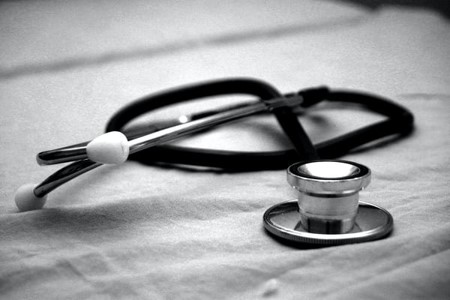
@ShahidNShah


Medicine has always been a field driven by innovation. Over the centuries, new discoveries and inventions have revolutionized how we diagnose, treat, and prevent diseases. In recent years, technology has been the driving force behind some of the most exciting advances in healthcare. From artificial intelligence and robotics to personalized medicine and telehealth, these new tools and techniques are transforming patient care. This article will explore some of the most significant technological advancements in medicine and their potential impact on the healthcare industry.
Artificial intelligence (AI) is changing the way medical professionals approach diagnostics. By analyzing vast amounts of data quickly and accurately, AI can identify patterns and correlations that human experts might miss. This capability is particularly beneficial in fields like radiology, where AI systems can examine imaging studies such as X-rays, MRIs, and CT scans with remarkable precision.
The use of AI in detecting breast cancer through mammograms has shown promise in increasing the early detection rate, thus improving patient outcomes. Studies have shown AI-assisted tools can reduce false positives and negatives, leading to more effective treatment plans.
As a collaborative physician works to integrate new technologies into practice, telehealth has become increasingly important in modern healthcare delivery. With the widespread availability of smartphones and internet access, telehealth has become a viable option for patients who may not have the means or opportunity to visit healthcare facilities in person. This capability has been incredibly transformative during the COVID-19 pandemic, where minimizing in-person contact became crucial.
According to a report by McKinsey, telehealth utilization in the United States has stabilized at levels 38 times higher than before the pandemic. This shift indicates a significant rethinking of how healthcare can be delivered efficiently and effectively.
Robotic-assisted surgery is another groundbreaking technological advance. These sophisticated machines enable surgeons to perform intricate procedures with enhanced precision and control. The robotic systems typically consist of a console where the surgeon sits and a patient-side cart with robotic arms holding surgical instruments.
When considering robotic surgery, patients should ensure their surgical team has comprehensive training and experience with the specific robotic system in use. Discussion about potential risks and benefits is crucial in making an informed decision.
Personalized medicine, or precision medicine, uses genetic profiling and other individual information to tailor treatments specifically to the patient. This approach shifts from the traditional “one-size-fits-all” model to more precise interventions based on individual variations.
In oncology, treatments for certain cancers incorporate genetic testing to identify specific mutations. These targeted therapies can be significantly more effective than standard treatments, prolonging survival rates and improving quality of life.
The Internet of Medical Things (IoMT) encompasses a network of devices, sensors, and software applications that connect to health IT systems via the internet. This connectivity allows for continuous monitoring of patients and data collection, providing a more comprehensive picture of an individual’s health.
Though promising, IoMT also brings up privacy and data security concerns. Healthcare providers and patients must understand how data is collected, stored, and used to protect personal information effectively.
The technological tools reshaping medicine are creating new opportunities for improving patient care. These innovations continue to evolve, offering increasingly sophisticated solutions for healthcare delivery and patient monitoring.
Technological innovations are opening new medical frontiers, promising to make healthcare more effective, personalized, and accessible. Artificial intelligence, telehealth, robotics, personalized medicine, and the Internet of Medical Things are revolutionizing patient care, positioning these tools as essential components of modern healthcare systems. As the industry progresses, these technologies will likely evolve further, creating additional opportunities for improving patient outcomes and shaping the healthcare experience.
Staying informed about these advances can help patients and healthcare professionals make better choices and adapt to the rapid changes within the medical field.

In today’s fast-evolving healthcare landscape, effective patient engagement is critical for ensuring high-quality care and better health outcomes. With increasing patient expectations and the growing …
Posted Oct 28, 2024 Patient Engagement Patient Safety
Connecting innovation decision makers to authoritative information, institutions, people and insights.
Medigy accurately delivers healthcare and technology information, news and insight from around the world.
Medigy surfaces the world's best crowdsourced health tech offerings with social interactions and peer reviews.
© 2025 Netspective Foundation, Inc. All Rights Reserved.
Built on Apr 17, 2025 at 6:07am